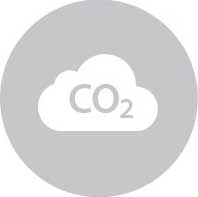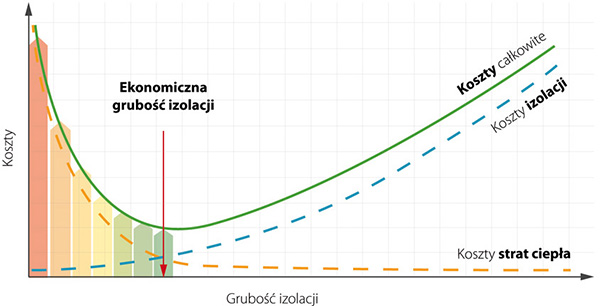ENERGY EFFICIENCY
a ratio of energy consumption of a building, technical appliance or installation and the energy used to reach that point.
-

20%
Reduction of CO2 emission when compared to 1990.
-

20%
Renewable energy share. of CO2 when compared to 1990.
-

20%
Energy efficiency increase by 20%

ECONOMIC INSULATION ANDENVIRONMENTAL PROTECTION

REDUCED HEAT LOSS

EFFECTIVE POWER CONSUMPTION

REDUCED POLLUTION

REDUCED FUEL CONSUMPTION

COUNTERACTING CLIMATE CHANGES
WHITE CERTIFICATES
White certificates were introduced in Energy Efficiency Act on 15th April 2011. They create a mechanism which stimulates and imposes pro-saving behaviour. White certificates are granted solely for high economic efficiency of companies which sell electricity, heat or gas to end customers. They are bound by the act to obtain certain number of certificates and submit them to the President of Energy Regulation Office (URE) or pay a substitute fee. The President of URE is entitled to issue or amortise those certificates, and all vested interest resulting from that are transferable at the Polish Power Exchange (TGE).
Insulation Thickness
Insulation designed and applied in line with standards of economy, where heat loss and insulation costs are the lowest, constitutes one of factors determining energy efficiency improvement.
The general assumption behind insulation design of industrial installation is to meet HSE rules, which is to keep the temperature of 50C-60C of insulation cladding. The aim of insulation is to limit heat loss and therefore to increase heat production efficiency. Choosing the right insulation means cost reduction of industrial installation maintenance afterwards. Economic insulation is a ratio of financial means spent on insulation against cost of maintenance. Estimation of reimbursement helps to take the decision to invest in insulation. Steam pipeline insulation analysis proves application of economic insulation. The thickness of insulation helps to recover the loss due to application of insulation according to HSE rules, keeping 50C-60C temperature of insulation cladding.

ECONOMIC INSULATION BENEFITS
Economic insulation is where theory meets practice. The aim of it is to improve heat savings, based on up-to-date technical possibilities, as well as reduction of energy sources consumption and CO2 emission. That leads to significant reduction of energy production cost, which can be specified in time.
Saving
"...energy production must not be associated with high costs, or else it will be extremely difficult to create a global agreement..."
Low emission
"...and for that reason we will do our best to support those branches of energy production which sound promising and, at the same time, act in line with climate preservation policy..."
Ecology friendly
"..it is an important sign for the future that you can look for mechanisms which will not harm economic groth and yet effectively guard our climate and environment..."



